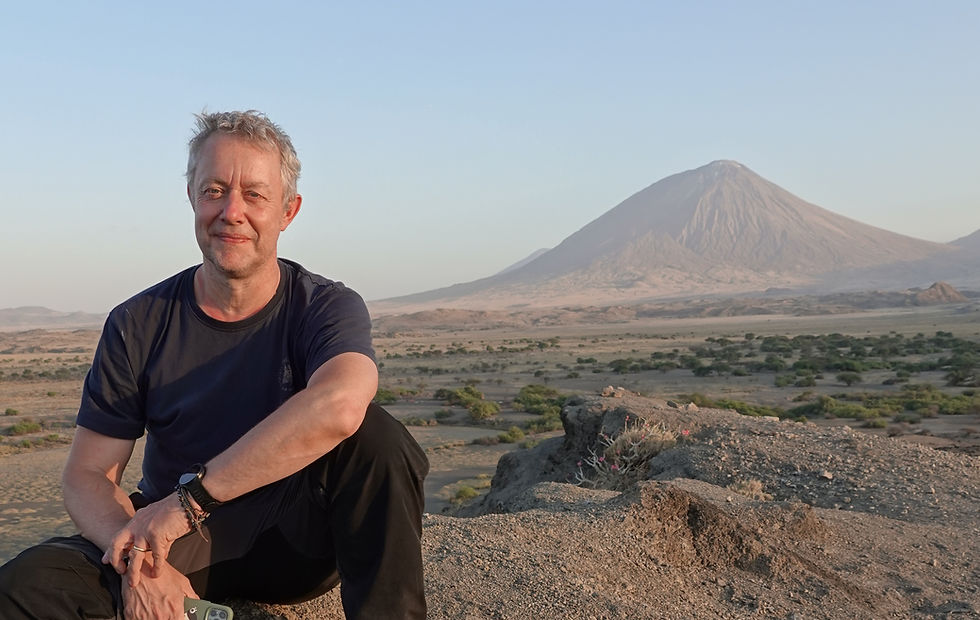The Leadership Lesson Behind a Simple, Strawberry Milkshake
- Manu Henrard

- Oct 14, 2024
- 3 min read
Updated: Oct 17, 2024

Gardens have always been a sanctuary for me, but in the summer of 1989, I was sitting in my parents’ garden, so consumed by anxiety that I could barely notice the birds or the warmth of the sun.
I was buried in law textbooks, preparing for one of the most stressful events of my young adult life: my final law exams. With just two days left, panic had taken over. I was lost in thoughts of failure, imagining myself staring blankly at exam questions I couldn’t answer.
The only time I glanced up from my books is when I saw Mamie (my grandmother), from the corner of my eye, picking strawberries in the distance.
I went back to my books and the next time I looked up, it was because Mamie had reappeared, this time holding a strawberry milkshake.
“Drink this,” she said, before turning back to the house. No fanfare, no need for a thank you. Just a simple, selfless act of kindness. I took a sip, and something changed: the panic softened, my senses opened, and I felt a wave of calm and love come over me.
I think about this moment often.
Compassionate leadership is a key concept we frequently explore with senior leaders during executive coaching. It is driven by a sincere desire to serve and uplift others, focusing on meeting real needs without the pursuit of personal recognition. The value? Beyond enhancing individual and collective well-being, it encourages leaders to make decisions that prioritize long-term positive impact for both people and society, even when those decisions involve personal risks to their reputation, financial bonuses, or career advancement.
There is a reason that particular moment in the garden has stayed with me. The milkshake was delicious, of course, but it was that simple act of generosity, shared with no expectation of anything in return. And thanks to this care and attention, I was able to go back to work with a sense of ease and security that was beneficial to my productivity.
It can be easier to set aside ego and act from a place of compassionate generosity in the context of a family—though there are certainly challenges here as well. But it is incredibly important work to do in the coporate world.
Leaders must learn to journey from ego-driven generosity to true compassionate leadership. Too often, their goodwill runs out when personal needs feel threatened.
And the cost of a lack of compassion, as Emmanuel Faber – ex CEO from Danone - once highlighted, is not just missed opportunities for human connection, but a direct loss in organizational resilience and sustainable success.
It’s human and hard, but there are ways to help leaders navigate this tension and sustain their compassion. And here’s the thing—people always remember the milkshake.
So, where do we begin this journey toward compassionate leadership?
Step 1: Recognize the tension between your desire for the greater good and your fear of losing something important. Acknowledge this as a normal human experience.
Step 2: Feel the fear but lead anyway. Allow yourself to feel it, talk about it with people you trust, and explore its roots. When fear is acknowledged, it no longer needs to shout.
Step 3: Start small. Begin by making small, intentional choices that prioritize compassion over ego. Gradually, these small steps will lead to lasting change.
Big changes start with small acts - like a strawberry milkshake.
When leaders set ego aside and lead from love, the impact is stronger and performance becomes sustainable. And it’s not about grand gestures—it starts with small, intentional acts, like Mamie’s simple strawberry milkshake.
Thanks for always reading.
Manu

Manu Henrard is a leadership Coach and an Executive Recruiter based in Brussels. He is also an associate from the Strozzi Institute for embodied leadership.
Manu's professional commitment is to help leaders increase meaningful productivity and achieve inner peace. More about his coaching program here.



Comments